Volvo XC40 vs VW Passat - Differences and prices compared
Compare performance (197 HP vs 272 HP), boot space and price (36800 £ vs 36500 £) at a glance. Find out which car is the better choice for you – Volvo XC40 or VW Passat?
Costs and Efficiency:
Looking at overall running costs, both models reveal some interesting differences in everyday economy.
VW Passat has a barely noticeable advantage in terms of price – it starts at 36500 £, while the Volvo XC40 costs 36800 £. That’s a price difference of around 300 £.
Fuel consumption also shows a difference: VW Passat manages with 1.20 L and is therefore clearly more efficient than the Volvo XC40 with 6.50 L. The difference is about 5.30 L per 100 km.
Engine and Performance:
Power, torque and acceleration are the classic benchmarks for car enthusiasts – and here, some clear differences start to show.
When it comes to engine power, the VW Passat has a evident edge – offering 272 HP compared to 197 HP. That’s roughly 75 HP more horsepower.
In acceleration from 0 to 100 km/h, the VW Passat is noticeable quicker – completing the sprint in 5.80 s, while the Volvo XC40 takes 7.60 s. That’s about 1.80 s faster.
In terms of top speed, the VW Passat performs clearly perceptible better – reaching 250 km/h, while the Volvo XC40 tops out at 180 km/h. The difference is around 70 km/h.
There’s also a difference in torque: VW Passat pulls evident stronger with 400 Nm compared to 300 Nm. That’s about 100 Nm difference.
Space and Everyday Use:
Whether family car or daily driver – which one offers more room, flexibility and comfort?
Both vehicles offer seating for 5 people.
In curb weight, VW Passat is barely noticeable lighter – 1573 kg compared to 1688 kg. The difference is around 115 kg.
In terms of boot space, the VW Passat offers clearly perceptible more room – 690 L compared to 452 L. That’s a difference of about 238 L.
In maximum load capacity, the VW Passat performs noticeable better – up to 1920 L, which is about 592 L more than the Volvo XC40.
When it comes to payload, VW Passat slight takes the win – 577 kg compared to 532 kg. That’s a difference of about 45 kg.
Who comes out on top?
Overall, the VW Passat shows itself to be dominates this comparison and secures the title of DriveDuel Champion.
It convinces with the more balanced overall package and proves to be the more versatile choice for everyday use.
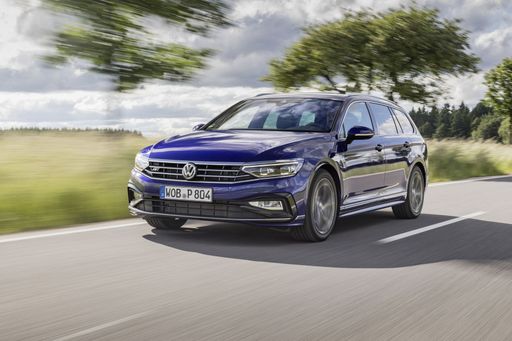
VW Passat
Costs and Consumption
View detailed analysis
Engine and Performance
View detailed analysis
Dimensions and Body
View detailed analysis
Volvo XC40
The Volvo XC40 wraps Scandinavian minimalism into a compact, city-ready SUV with a premium cabin that feels both practical and grown-up. It will suit buyers who prize safety, clever storage and a composed ride, proving that small dimensions don't mean small personality.
details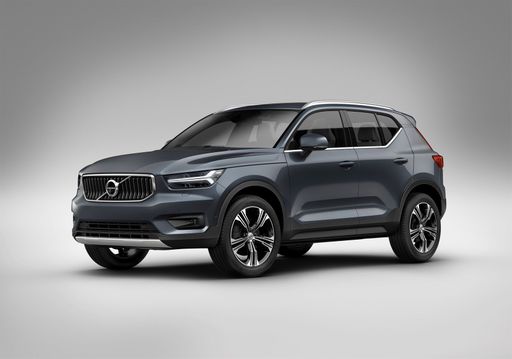


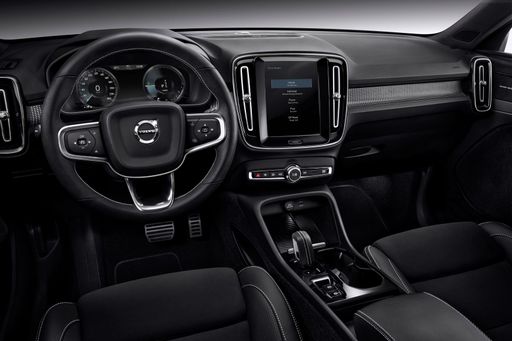

VW Passat
The VW Passat is the grown-up family car that gets the basics absolutely right — roomy, comfortable and built to handle weekday commutes and weekend getaways without fuss. It won't set your pulse racing, but its calm composure and sensible packaging make it boring in the best possible way: a dependable, no‑drama choice for buyers who value practicality over flash.
details
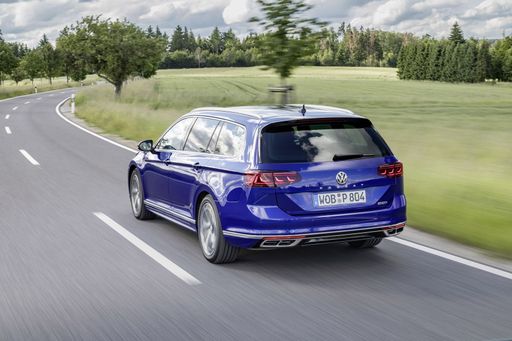
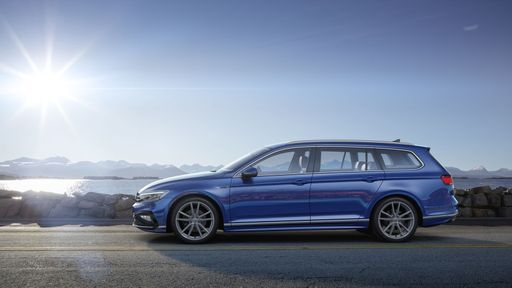
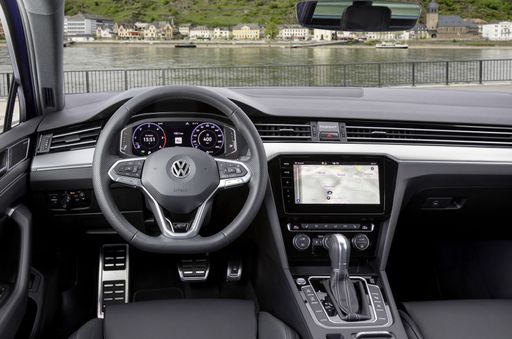
Costs and Consumption |
|
|---|---|
|
Price
36800 - 47200 £
|
Price
36500 - 58500 £
|
|
Consumption L/100km
6.50 L
|
Consumption L/100km
1.2 - 8 L
|
|
Consumption kWh/100km
-
|
Consumption kWh/100km
-
|
|
Electric Range
-
|
Electric Range
124 - 135 km
|
|
Battery Capacity
-
|
Battery Capacity
19.70 kWh
|
|
co2
147 - 148 g/km
|
co2
28 - 181 g/km
|
|
Fuel tank capacity
54 L
|
Fuel tank capacity
45 - 66 L
|
Dimensions and Body |
|
|---|---|
|
Body Type
SUV
|
Body Type
Estate
|
|
Seats
5
|
Seats
5
|
|
Doors
5
|
Doors
5
|
|
Curb weight
1688 kg
|
Curb weight
1573 - 1858 kg
|
|
Trunk capacity
452 L
|
Trunk capacity
510 - 690 L
|
|
Length
4425 mm
|
Length
4917 mm
|
|
Width
1863 mm
|
Width
1849 mm
|
|
Height
1652 mm
|
Height
1521 mm
|
|
Max trunk capacity
1328 L
|
Max trunk capacity
1770 - 1920 L
|
|
Payload
532 kg
|
Payload
501 - 577 kg
|
Engine and Performance |
|
|---|---|
|
Engine Type
Petrol MHEV
|
Engine Type
Petrol, Petrol MHEV, Diesel, Plugin Hybrid
|
|
Transmission
Automatic
|
Transmission
Automatic
|
|
Transmission Detail
Dual-Clutch Automatic
|
Transmission Detail
Dual-Clutch Automatic
|
|
Drive Type
Front-Wheel Drive
|
Drive Type
All-Wheel Drive, Front-Wheel Drive
|
|
Power HP
163 - 197 HP
|
Power HP
122 - 272 HP
|
|
Acceleration 0-100km/h
7.6 - 8.6 s
|
Acceleration 0-100km/h
5.8 - 10.7 s
|
|
Max Speed
180 km/h
|
Max Speed
212 - 250 km/h
|
|
Torque
265 - 300 Nm
|
Torque
250 - 400 Nm
|
|
Number of Cylinders
4
|
Number of Cylinders
4
|
|
Power kW
120 - 145 kW
|
Power kW
90 - 200 kW
|
|
Engine capacity
1969 cm3
|
Engine capacity
1498 - 1984 cm3
|
General |
|
|---|---|
|
Model Year
2024
|
Model Year
2024 - 2025
|
|
CO2 Efficiency Class
E
|
CO2 Efficiency Class
G, D, E, B
|
|
Brand
Volvo
|
Brand
VW
|
What drive types are available for the Volvo XC40?
The Volvo XC40 is available as Front-Wheel Drive.
The prices and data displayed are estimates based on German list prices and may vary by country. This information is not legally binding.




